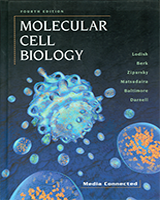[Wikipedia] 癌症(cancer)是医学术语,其为最常见的恶性肿瘤,亦有人将癌症和恶性肿瘤混合使用;为由控制细胞分裂增殖机制失常而引起的疾病。癌细胞除了分裂失控外,还会局部侵入周遭正常组织甚至经由体内循环系统或淋巴系统转移到身体其他部分。
癌细胞持续生长而不受外在讯息调控,可能是原本正常的原癌基因被激活,将细胞引入到癌变状态,但主要还是因为一些与控制细胞分裂有关的蛋白质出现异常,如肿瘤抑制基因的功能失常。导致这种局面,可能是为该蛋白编码的DNA因突变而出现了损伤,转译而出的蛋白质因此也出现错误。要将一个正常细胞转化成一个恶性肿瘤细胞通常需要许多次突变发生,或是基因转译为蛋白质的过程受到干扰[2]。
引起基因突变的物质被称为致癌物质,又以其造成基因损伤的方式可分为化学性致癌物与物理性致癌物。例如接触放射性物质,或是一些环境因子,例如,香烟、辐射、酒精。还有一些病毒可将本身的基因插入细胞的基因里,激活癌基因。但突变也会自然产生,所以即使避免接触上述的致癌因子,仍然无法完全预防癌症的产生。发生在生殖细胞的突变有可能传至下一代。
各个年龄层的人都有可能产生癌症,由于DNA的损伤会随着年龄而累积增加,年纪越大得到癌症的机会也随之增加。随着人均寿命的增加,癌症在发达国家中已成为主要死亡原因之一。
看图说话:与癌症相关的7类基因突变(图中为对应的蛋白质类型)
Cancer can result from expression of mutant forms of these proteins: growth factors (生长因子)(I), growth factor receptors (生长因子受体)(II), signal-transduction proteins (信息传导蛋白)(III), transcription factors(转录因子) (IV), pro- or anti-apoptotic proteins(促进或抑制细胞凋亡蛋白) (V), cell cycle control proteins (细胞循环控制蛋白)(VI), and DNA repair proteins (DNA修复蛋白)(VII). Mutations changing the structure or expression of proteins in classes I–IV generally give rise to dominantly active oncogenes. The class VI proteins mainly act as tumor suppressors; mutations in the genes encoding these proteins act recessively to release cells from control and surveillance, greatly increasing the probability that the mutant cells will become tumor cells. Class VII mutations greatly increase the probability of mutations in the other classes. Virus-encoded proteins that activate growth-factor receptors (Ia) also can induce cancer.

The seven types of proteins that participate in controlling cell growth
**********************************************************************
扩展阅读:
- Gain-of-Function Mutations Convert Proto-Oncogenes into Oncogenes
- Oncogenes Were First Identified in Cancer-Causing Retroviruses
- Slow-Acting Carcinogenic Retroviruses Can Activate Cellular Proto-Oncogenes
- Many DNA Viruses Also Contain Oncogenes
- Loss-of-Function Mutations in Tumor-Suppressor Genes Are Oncogenic
- The First Tumor-Suppressor Gene Was Identified in Patients with Inherited Retinoblastoma
- Loss of Heterozygosity of Tumor-Suppressor Genes Occurs by Mitotic Recombination or Chromosome Mis-segregation
- SUMMARY
NCBI Bookshelf. A service of the National Library of Medicine, National Institutes of Health.
